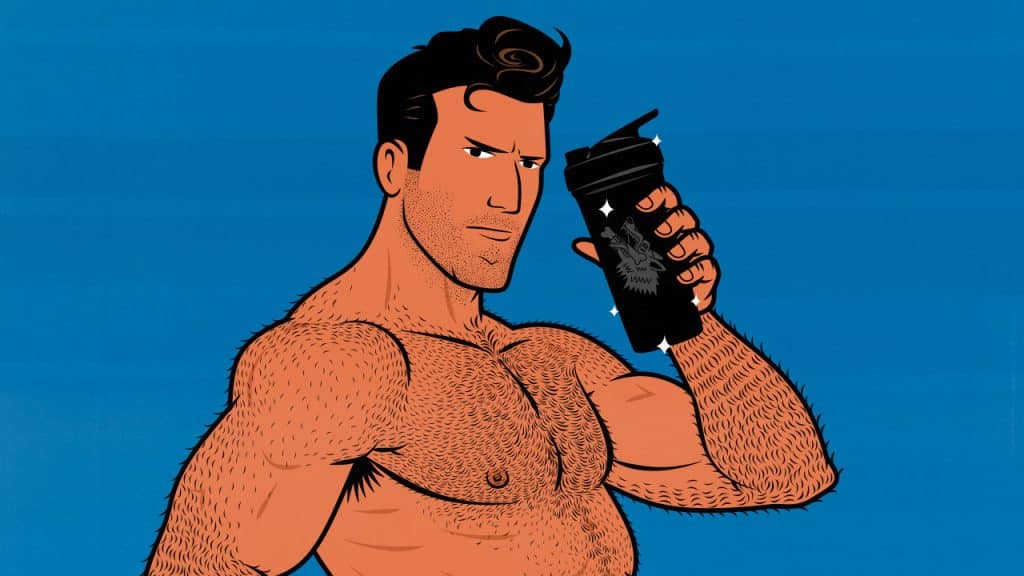
The Best Time to Have a Protein Shake
You can have a protein shake at any time. The most important thing is to consume enough protein overall. Still, some times are better than others.
Maybe you’ve heard of a bodybuilder who wakes up in the middle of the night to chug the shake they’ve left on their bedside table. You can do better than that.
And what about the anabolic window? Should you be having protein shakes before and after working out? Maybe, yes.
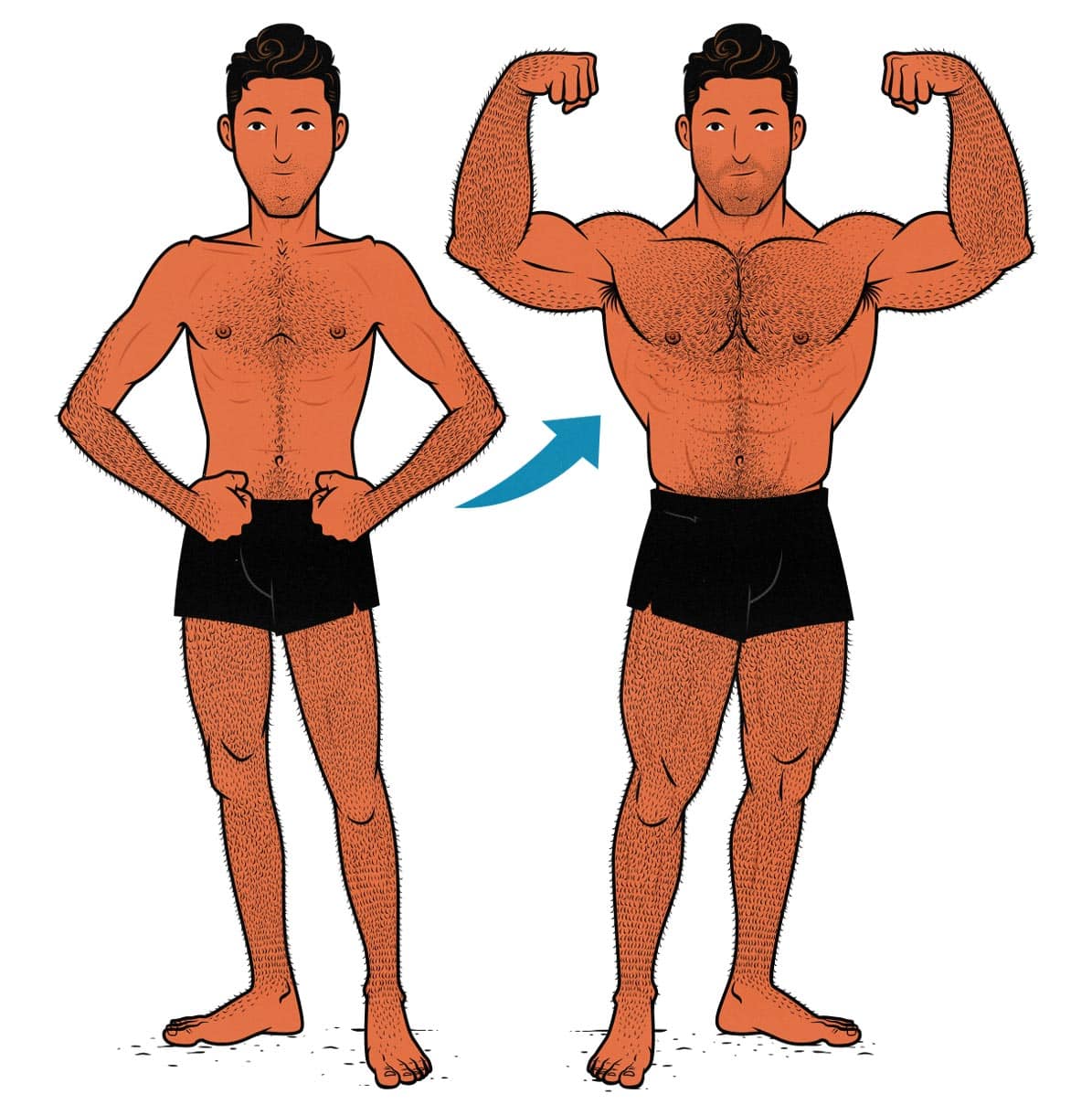
Having A Protein Shake Before or After Working Out
Maybe you’ve heard of the anabolic window. It’s an old bodybuilding term. The idea is that when you work out, you stimulate muscle growth, making your muscles hungry for protein and calories. You also burn through glycogen, giving you an excuse to reinflate them with extra carbs. After all, muscles seem to grow best when they’re stuffed to the brim with glycogen.
So, there was a tradition of drinking a protein shake right after every workout. Sometimes, they’d mix in some carbs, too, turning it into a mass gainer shake. And it worked! Those post-workout shakes helped bodybuilders build more muscle (study, study, study, study).
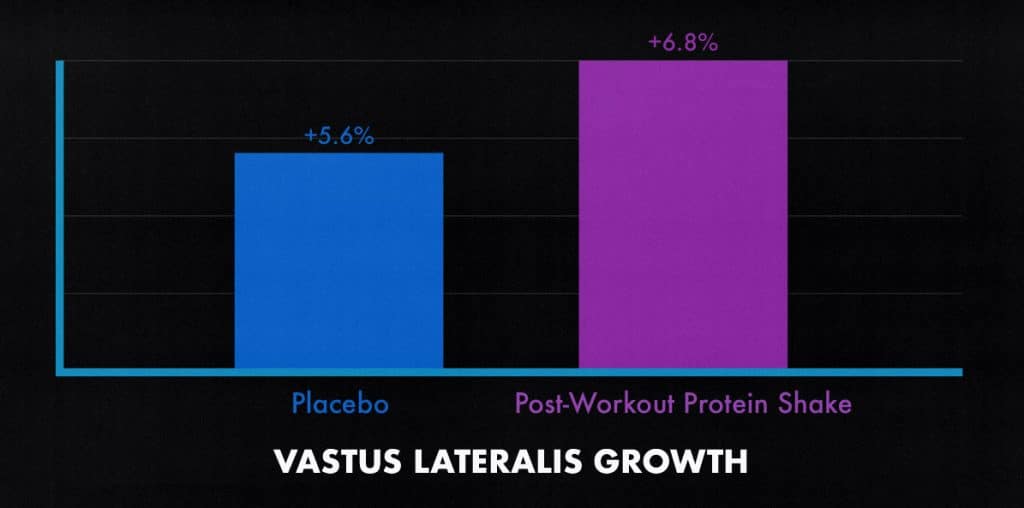
For example, in a study by Hulmi and colleagues, the participants given workout shakes with 30g of whey protein gained 20% more muscle than the group given zero-calorie placebo shakes (study).
However, it’s not quite as simple as that. Protein shakes add protein and calories to our diets. Perhaps it’s those extra nutrients producing the extra growth. Maybe it doesn’t matter when we have our protein shakes, just that we eat enough protein and calories overall.
Maybe muscle growth can crawl through any old window, anabolic or not.
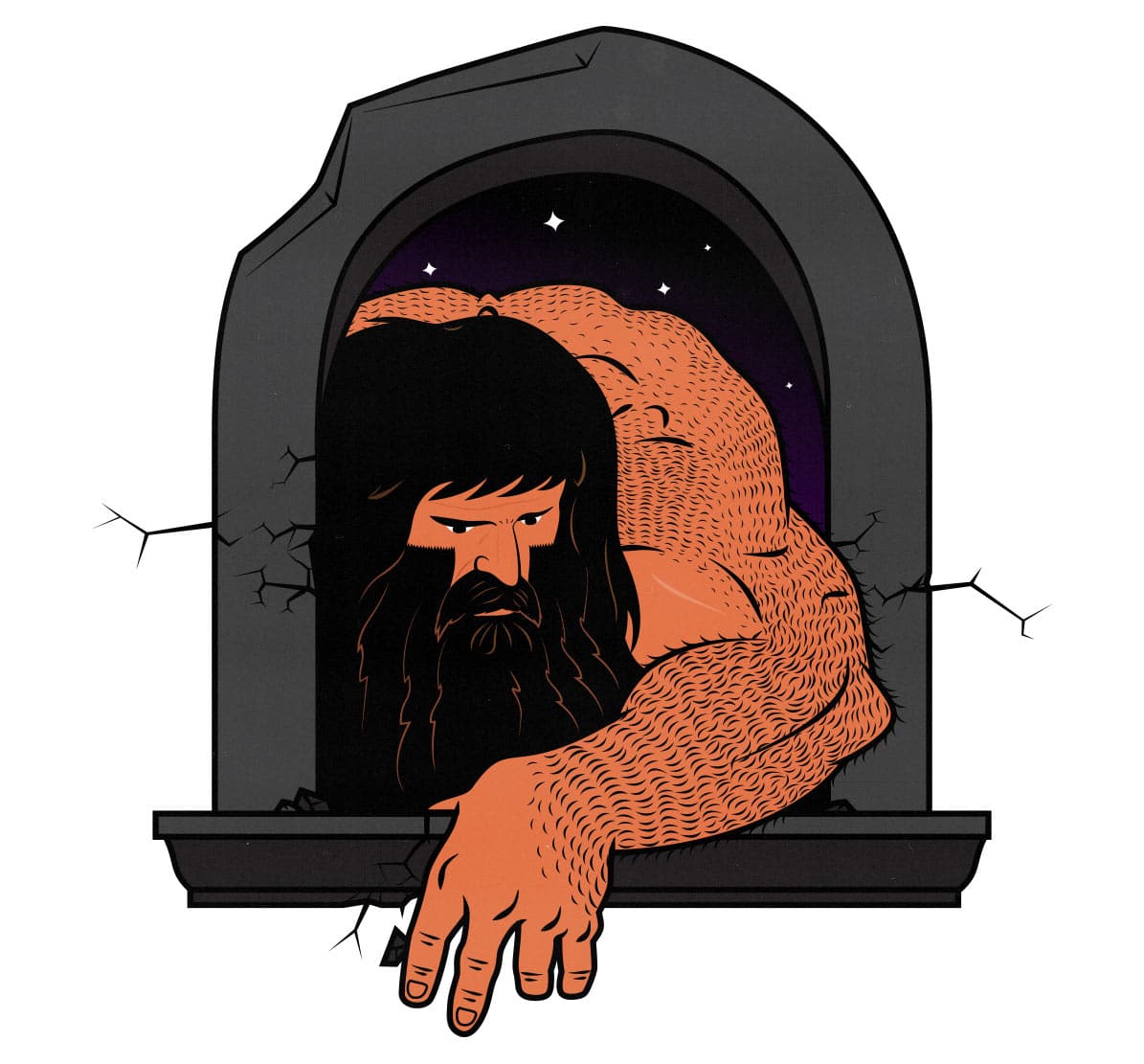
The Post-Workout Protein Shake
There’s actually quite a bit of evidence for the anabolic window. However, it’s not nearly as narrow as bodybuilders feared. Most studies show it lasting for about 4 hours, beginning around 90 minutes before training, carrying through your workout, and then lasting for another 90 minutes afterwards (study, study). If you eat every few hours, you may already be meeting its needs.
So why have a protein shake, then? You don’t have to, but they’re a cheap, simple, and easy addition to your workout routine, and they improve muscle growth just as much as adding an extra chicken breast to your post-workout meal.
If you’re naturally thin, post-workout shakes offer an even greater advantage: they’re easy on the appetite. They make it easier to eat more calories, allowing you to gain weight and bulk up.
The Pre-Workout Protein Shake
Protein takes a little time to digest. Even if you shake up a quickly-digested protein like whey, it still takes time to break down into amino acids and flow into your ravenous muscles. Because of that, most research shows that having a pre-workout shake works yields just as much muscle growth as having a post-workout shake (study).
If you’re working out before breakfast, if you’re feeling hungry, or if you’re already falling behind on calories, you can have a protein shake before your workout. That way, you’ll have energy and amino acids available when you need them. I’ve got my favourite protein shake recipe here.
The Intra-Workout Protein Shake
Believe it or not, there’s a bodybuilding tradition of having protein shakes while lifting weights. Sometimes, that means sipping on whey protein. Usually, it means sipping on giant jugs of fluorescently flavoured amino acids. Amino acids, after all, are broken-down proteins.
This is how I’ve always done it. I had a really hard time gaining weight, so I’d make giant shakes with 60–90 grams of whey protein, 90–180 grams of maltodextrin, and 10 grams of spirulina. They were unpleasant to chug, but they weren’t too bad to sip on. I found they gave me pretty good energy while working out.
The Best Time to Have a Protein Shake
You can have a protein shake before or after working out. You could also have it while working out. What you do is up to you. If your stomach is gnawing at you while lifting, have a protein shake. If you don’t like lifting on a full stomach, save it for later.
And, of course, if you’re already eating enough protein and calories, you don’t need to have a protein shake at all. You’re already doing great.
When Else Should You Have a Protein Shake?
A hearty workout can stimulate upwards of 2–3 days of muscle growth. The anabolic window is a nice detail, but most of your muscle growth will come from eating enough protein and calories throughout that entire 3-day period.
You need about 0.7 grams of protein per pound bodyweight per day to maximize your rate of muscle growth. If you weigh 150 pounds, that’s 105 grams of protein (systematic review). It isn’t that difficult to get that much protein from your diet, but if you’re struggling, plug any holes with protein shakes:
- If a meal is low in protein, maybe add a protein shake alongside it.
- If you’re struggling to eat enough protein per day, have a protein shake.
- If you’re headed to the gym, consider tossing a protein shake into your gym bag.
You can have up to about 3 protein shakes per day without any known negative effects, but that’s excessive for almost all of us. If you’d rather not have any protein shakes, that’s perfectly fine, too. Just make sure to have enough protein in your meals. If that isn’t enough, you can always blend up a nutritious bulking smoothie.
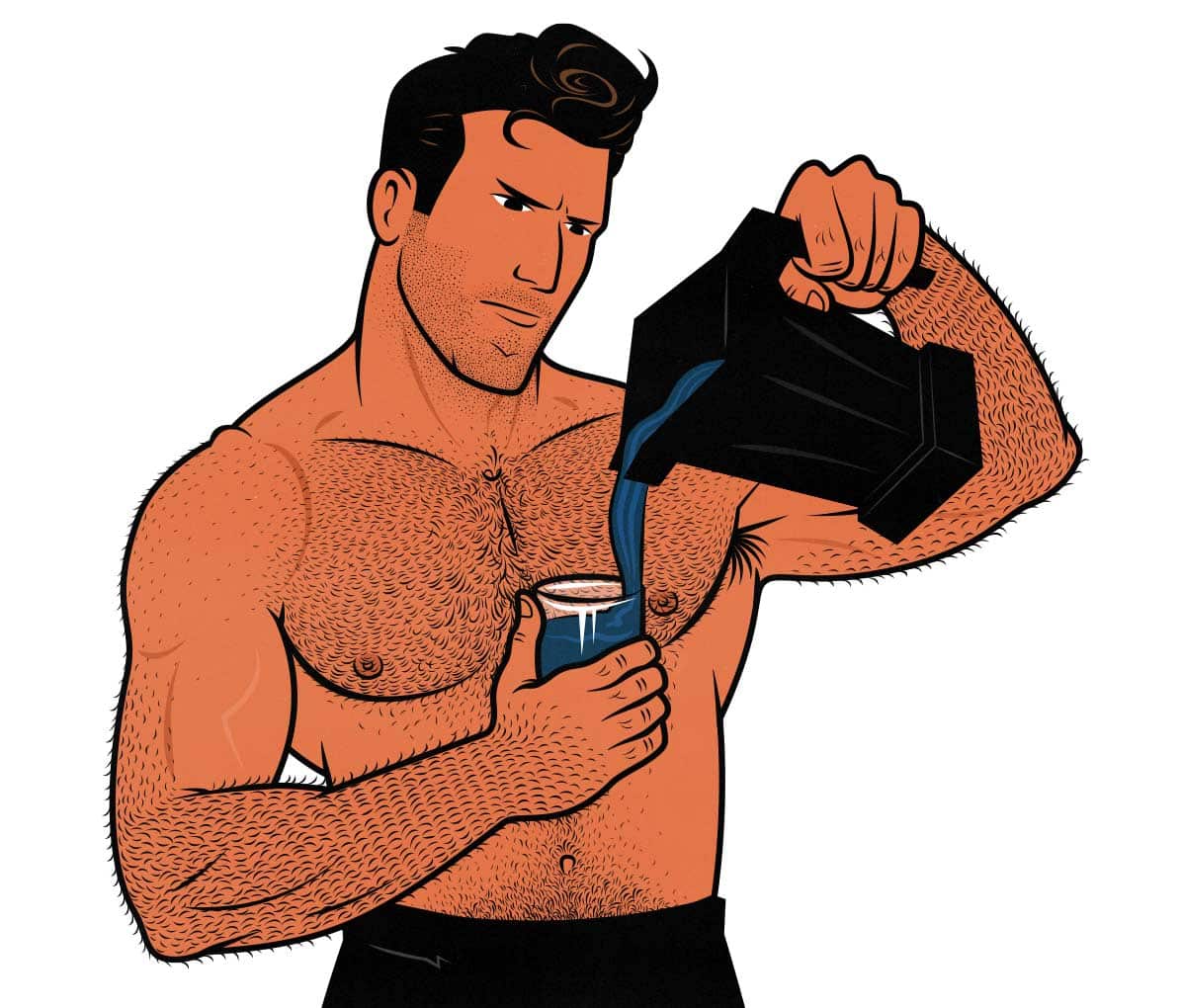
Conclusion
There’s a funny thing that can happen in the evidence-based fitness community. There’s a long weight-lifting tradition of having post-workout protein shakes and big post-workout meals. It wasn’t completely evidence-based, but it worked well.
The evidence-based fitness community came along and debunked the anabolic window, proving that it was much broader than bodybuilders thought. That’s true, and that’s good. But some people come away from those studies with the impression that post-workout shakes don’t work or that protein powder isn’t worth it.
That isn’t what the research shows. The research shows that eating enough protein is an important part of building muscle. Eating enough calories is important, too. Protein shakes help with both of those things, making it simpler and easier to build muscle. And if you’re going to drink them, having them before, during, or after working out is probably the best time to do it.
My wife is a certified nutritionist, but she isn’t super into the science of lifting weights. When she asks me the best time to have a protein shake, I tell her, “Have a scoop of whey right after you finish your workout.” She’ll usually blend that protein up with some frozen blueberries, oats, and water.
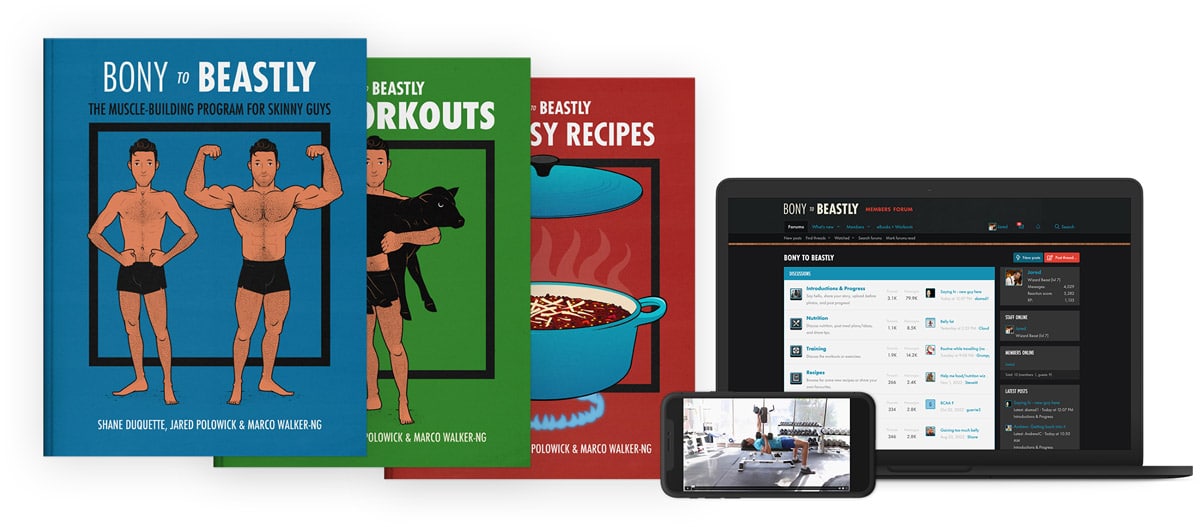
Alright, that’s it for now. If you want more muscle-building information, we have a free muscle-building newsletter. Or, if you want us to walk you through the entire process of bulking up, check out our Bony to Beastly Program. It includes a customizable workout routine, a bulking diet guide, a recipe book, and support from us in our online community.
We’ll help you get started, track your progress, answer all your questions, and give you feedback as you go through the program. Your results are fully guaranteed. We have an unconditional refund policy.

